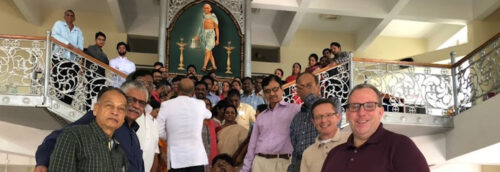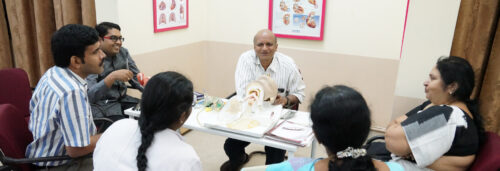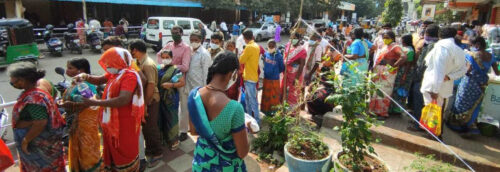Together we
can make a
difference
As Patient Lines Get longer in India, So Do Associated Discomforts
Waiting time in hospital outpatient clinics affects patient satisfaction, access to care, health outcomes, trust, willingness to return, and hospital revenue.
With more people than what the medical facilities in India can support, it is normal for patients in India to wait for hours at a stretch forgoing food, water, and even a much-needed visit to the restroom for fear of losing their turn. The problem is even more acute at Government-run hospitals. Patients or caregivers from poorer communities and those traveling from remote locations live in the hospital vicinity or sleep on payments for days waiting to see a doctor.
NGOs are stepping in to help. Sivananda Society built a two-floor building that offers shelter to about two hundred people. After visiting this facility, several alumni of Gandhi Medical College and members of its Global Alliance (GMCGA) started a program that offered one meal a day to residents. This program initially provided 200 meals at lunchtime catered by Hare Krishna Society and managed by Seva Bharthi. By early January 2020, all residents were receiving three meals a day.
An adequate amount of clean drinking water helps stay hydrated, especially in Telangana when summer temperatures move northward of 42°C. NGOs, ably funded by Indians overseas, have stepped in to alleviate the suffering of hospital visitors. GMCGA, a GMC alumni association, set up a drinking water plant within the Gandhi Hospital premises to deliver 40,000 liters of filtered water daily in the outpatient area for patients and visitors.
Few months ago the waiting area and the shelter built by Sivananda Society was unfortunately demolished by the government to make room for a much needed OB-GYN unit. The government has assured that it will offer alternative location to setup a new shelter and waiting area. Meanwhile, the meal distribution program has resumed in another area within the GMC/GH campus.



